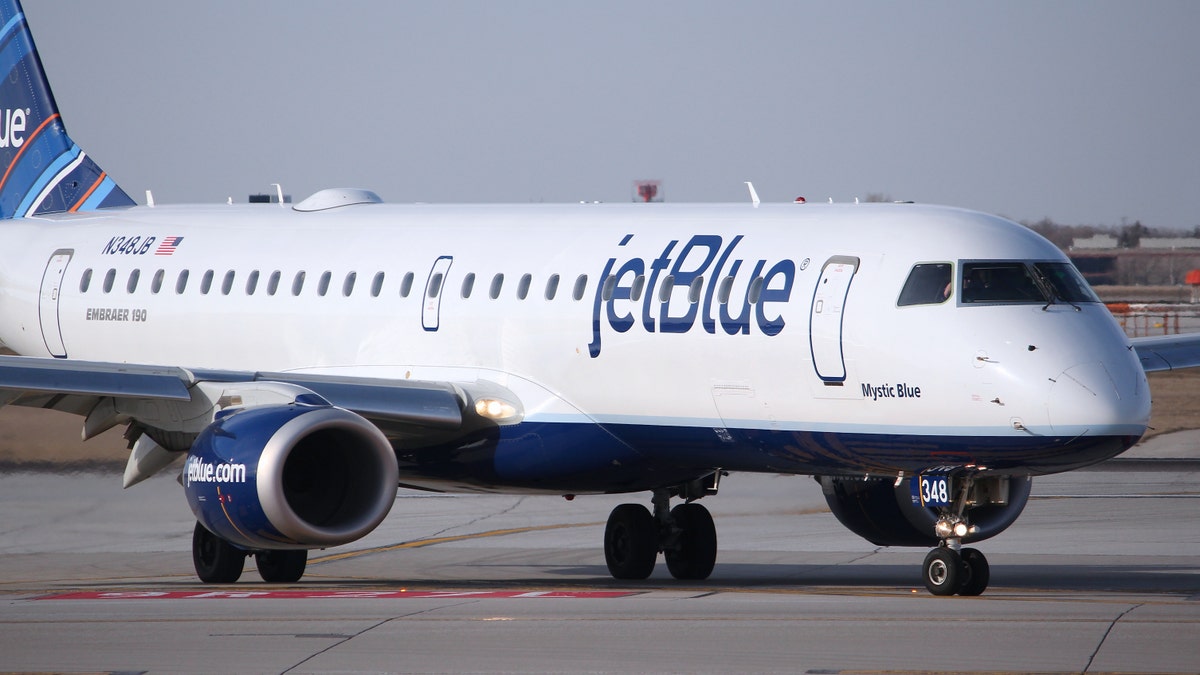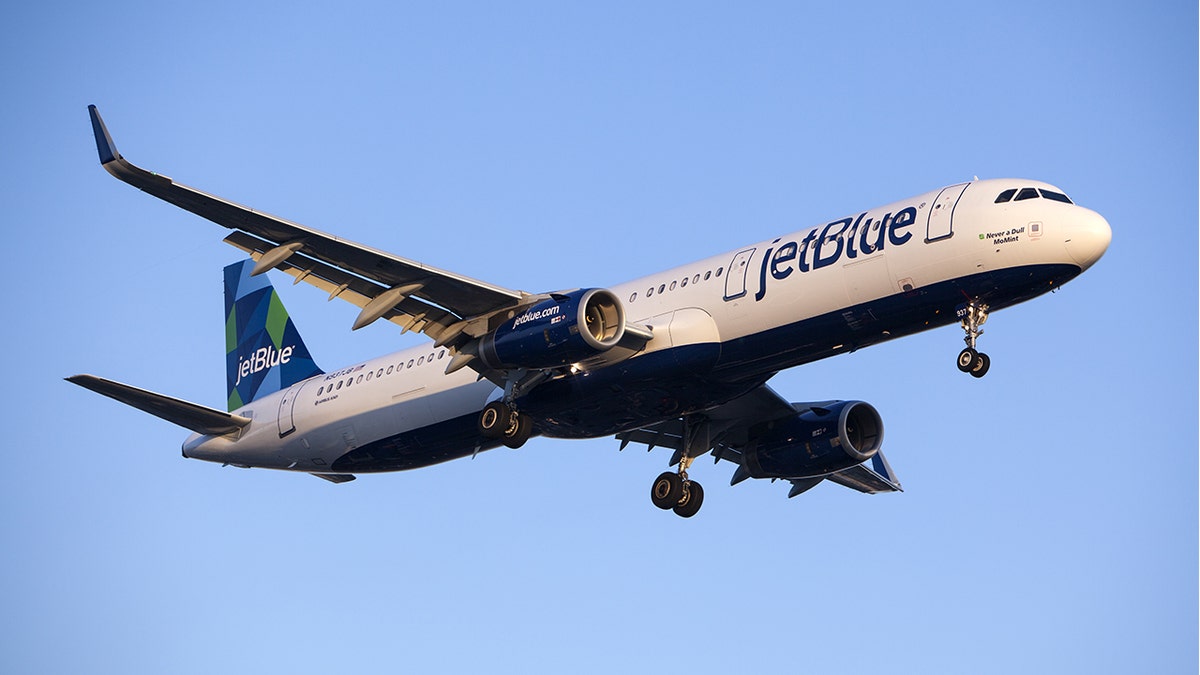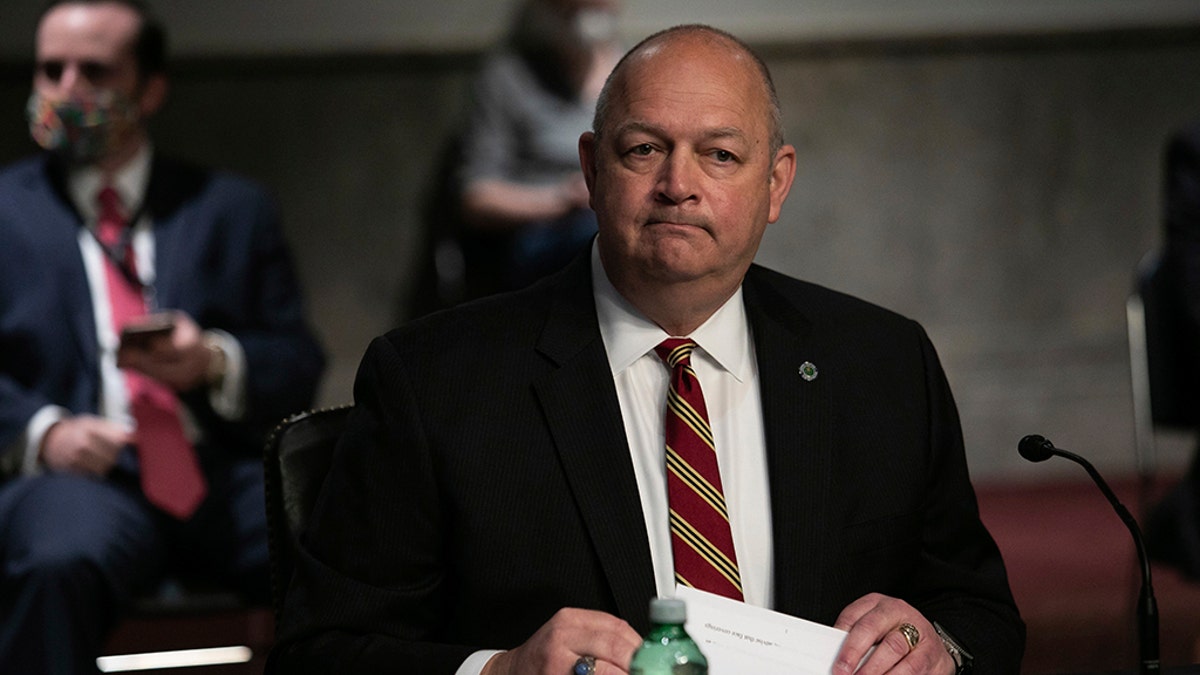Fox News Flash top headlines for March 17
Fox News Flash top headlines are here. Check out what's clicking on Foxnews.com.
It pays to wear a mask – or, in these cases, you may pay for not wearing one.
The Federal Aviation Administration is proposing civil penalities of $20,000 and $12,500 for two passengers on separate jetBlue Airlines flights in December who refused to obey flight attendants’ instructions.
The first passenger was flying from Boston to Puerto Rico on Dec. 27. After a flight attendant told her multiple times to put on a mask, the woman shoved the flight attendant in the shoulders and chest, shouted obscenities and threatened to have her fired, according to the FAA.

The FAA is proposing fines for two passengers on separate jetBlue Airlines flights in December who refused to obey flight attendants’ instructions. (iStock)
ALLEGEDLY DRUNK ALASKA AIRLINES PASSENGER FACES $250,000 GINE FOR BEHAVIOR HE CLAIMS NOT TO REMEMBER
The captain had to divert the flight back to Boston because of the woman’s unruly behavior. Now the woman is facing a $20,000 fine.
Just a few days later on Dec. 31, a man on a jetBlue flight from New York to the Dominican Republic also refused to wear a mask and to stop drinking from a prohibited personal bottle of alcohol, despite repeated instructions from a flight attendant, according to the FAA. The crew even issued the man a formal "notice to cease objectionable behavior" card, but he responded by shouting profanities at them, slamming overhead bins and becoming even more uncooperative, officials said.
While the plane was landing and taxiing to the gate, the man stood up, threw his bottle of alcohol and went to the lavatory, according to the FAA. The flight crew had law enforcement meet the plane at the gate. The man is facing a $12,250 fine.

Interfering with aircraft crew, as well as threatening or assaulting them or anyone else on an aircraft, is a violation of federal law. (iStock)
CLICK HERE TO GET THE FOX NEWS APP
A jetBlue spokesperson told Fox News, "We respect the FAA’s enforcement of these serious regulatory and safety violations and appreciate their support of our crewmembers who are working to maintain a safe and comfortable environment onboard during this difficult time."
Interfering with aircraft crew, as well as threatening or assaulting them or anyone else on an aircraft, is a violation of federal law. Penalties for breaking those laws can include civil or criminal fines and even prison time.
Last month, a federal mask mandate for people in airports and on planes also took effect, on top of policies airlines already had in place.
On Wednesday, FAA Administrator Steve Dickson said the agency was extending its zero-tolerance policy for unruly passengers because of the ongoing coronavirus pandemic.

FAA Administrator Steve Dickson said the agency was extending its zero-tolerance policy for unruly passengers because of the ongoing coronavirus pandemic. (Graeme Jennings/Pool via AP)
CLICK HERE TO SIGN UP FOR OUR LIFESTYLE NEWSLETTER
"The policy directs our safety inspectors and attorneys to take strong enforcement action against any passenger who disrupts or threatens the safety of a flight, with penalties ranging from fines to jail time," Dickson said in a written statement. "The number of cases we’re seeing is still far too high, and it tells us urgent action continues to be required."
One California man was recently ordered to pay nearly $50,000 in restitution for attacking a United Airlines flight attendant and forcing the Los Angeles-Tokyo flight to divert to Alaska in February 2020.
These passengers facing the proposed penalties will have 30 days to respond.
